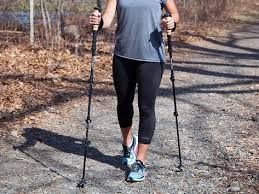
Recently Diagnosed or Relapsed? Stop Looking For a Miracle Cure, and Use Evidence-Based Therapies To Enhance Your Treatment and Prolong Your Remission
Multiple Myeloma an incurable disease, but I have spent the last 25 years in remission using a blend of conventional oncology and evidence-based nutrition, supplementation, and lifestyle therapies from peer-reviewed studies that your oncologist probably hasn't told you about.
Click the orange button to the right to learn more about what you can start doing today.
- You are here:
- Home »
- Blog »
- Multiple Myeloma »
- Myeloma Therapy- Mind-body-Forest Bathing + Hiking
Myeloma Therapy- Mind-body-Forest Bathing + Hiking

“The Japanese practice of forest bathing is proven to lower heart rate and blood pressure, reduce stress hormone production, boost the immune system, and improve overall feelings of wellbeing.
A diagnosis of cancer causes stress, anxiety, anger and more. Though your oncologist probably won’t discuss it, cancer patients and survivors need to practice mind-body therapies. As a long-term cancer survivor myself, I recommend combining the practice of forest bathing with hiking to combine the best of both of these wonderful mind-body therapies.
The two articles linked and excerpted below give evidence-based support for going for a hike in the woods can promote brain health (I live with chemobrain too but that’s another post…), provides perspective (boy, do we cancer survivors need perspective!), and even boost your immune system.
I underwent a great deal of radiation to my spine over two years. I’ve been living with lumbo-sacral plexopathy for awhile now. I need walking poles to keep my balance while I walk even in my own home. I use and recommend the poles pictured- light, adjustable, cork handles, reasonably priced.
Montem Ultra Strong Hiking/Walking/Trekking Poles. I couldn’t live without them.
If you’re interested in taking up hiking and want a little more info then MyOpenCountry’s beginners guide is a great place to get started.
Have you been diagnosed with multiple myeloma? What stage? Any symptoms such as bone, nerve or muscle pain?
To learn more about evidence-based mind-body therapies, scroll down the page, post a question or comment and I will reply ASAP.
To Learn More About Managing the Mental Health of Surviving Cancer- click now
Thank you,
David Emerson
- MM Survivor
- MM Cancer Coach
- Director PeopleBeatingCancer
Recommended Reading:
The Japanese practice of ‘forest bathing’ is scientifically proven to improve your health
“The Japanese practice of forest bathing is proven to lower heart rate and blood pressure, reduce stress hormone production, boost the immune system, and improve overall feelings of wellbeing.
Forest bathing—basically just being in the presence of trees—became part of a national public health program in Japan in 1982 when the forestry ministry coined the phrase shinrin-yoku and promoted topiary as therapy…
In a 2009 study Li’s subjects showed significant increases in NK cell activity in the week after a forest visit, and positive effects lasted a month following each weekend in the woods.
This is due to various essential oils, generally called phytoncide, found in wood, plants, and some fruit and vegetables, which trees emit to protect themselves from germs and insects. Forest air doesn’t just feel fresher and better—inhaling phytoncide seems to actually improve immune system function…
“Forest environments promote lower concentrations of cortisol, lower pulse rate, lower blood pressure, greater parasympathetic nerve activity, and lower sympathetic nerve activity than do city environments,” the study concluded.
In other words, being in nature made subjects, physiologically, less amped. The parasympathetic nerve system controls the body’s rest-and-digest system while the sympathetic nerve system governs fight-or-flight responses. Subjects were more rested and less inclined to stress after a forest bath…”
How Hiking Helps Anxiety and Depression
“Anxiety and depression are incredibly common ailments of 21st Century humans. But while there are a number of different treatments for these illnesses (and you should always discuss your symptoms with your doctor and seek the treatment he or she recommends), too many people overlook one of the best: hiking…
Exercise Promotes Brain Health
But while these benefits are all clearly valuable, exercise also helps to promote a healthy brain too. If your hikes are strenuous enough to elevate your heart rate and cause you to sweat a bit, they’ll likely help increase the size of your hippocampus – the portion of the brain associated with verbal memory and learning.
Exercise also causes the body to release growth factors – chemicals that help encourage blood vessel development in the brain and support the production of healthy brain cells. And don’t worry, you needn’t hike for very long to start enjoying improved brain health; research shows that even a 20-minute hike can improve the way your brain processes information…
Hiking Is Easy to Do and Affordable
Unlike so many other treatments for anxiety and depression, hiking is available to just about everyone, regardless of your location or tax bracket.
Most Americans probably live within a short drive of at least one hiking trail, even if it is nothing more than a 1-mile loop around the local park. You may have to do a bit of digging to find longer, more challenging or more scenic trails, but you’ll still likely find multiple options within driving distance.
Additionally, hiking rarely costs much – if anything – at all. Some trails require you to pay for parking or for entry to the park, but even these typically offer “frequent use” passes, which will allow you to enjoy the park or trails for very little money. You may also have to purchase a water bottle and pair of hiking boots, but with a bit of effort, you can likely find these things at very affordable prices…
Hiking Helps You to Disconnect from Day-to-Day Life
Chances are, you are constantly barraged by stimuli from the moment you wake up until the moment your head hits the pillow. Your phone, TV and radio constantly buzz with messages, information and entertainment, and you probably don’t have much time to quietly reflect on your thoughts.
But to get away from all of this, all you need to do is strap on your hiking boots and hit the trail. In contrast to our neighborhoods, homes and offices, wilderness areas are generally quiet and peaceful. This helps you to shed some of the stress caused by daily life. Disconnecting from your day-to-day life in this way can be very restorative and help reduce your anxiety and depression…
Hiking Provides Perspective
Often, anxiety and depression cause people to lose sight of the big picture. Instead of enjoying life, people struggling with depression or anxiety become stuck focusing on the small challenges, failures and disappointments that happen on a daily basis. But hiking in natural settings can help you bust out of this rut and gain a bit of perspective…
Hiking Helps You to Build Resilience and Self-Confidence
If you hike for long enough, you’ll surely experience a tough day on the trail. Your feet may blister, you may get lost, or you may find that the trail you chose was a bit too strenuous. But chances are, you’ll find some way to tough out the hike, and overcome these challenges.
This will help build resilience and boost your self-confidence in profound ways. In truth, any challenge you face and overcome will help in both of these respects, but doing so in the natural world often provides the most profound results…
Hiking Relieves Stress
Scientists have even found that spending time in nature – even simply looking at nature – helps relieve stress and recharge your mind, body and soul. In fact, looking at a natural setting helps reduce pain and accelerate the healing process. And if you hike with a friend or loved one, you’ll often find this helps alleviate your stress even more thoroughly…


